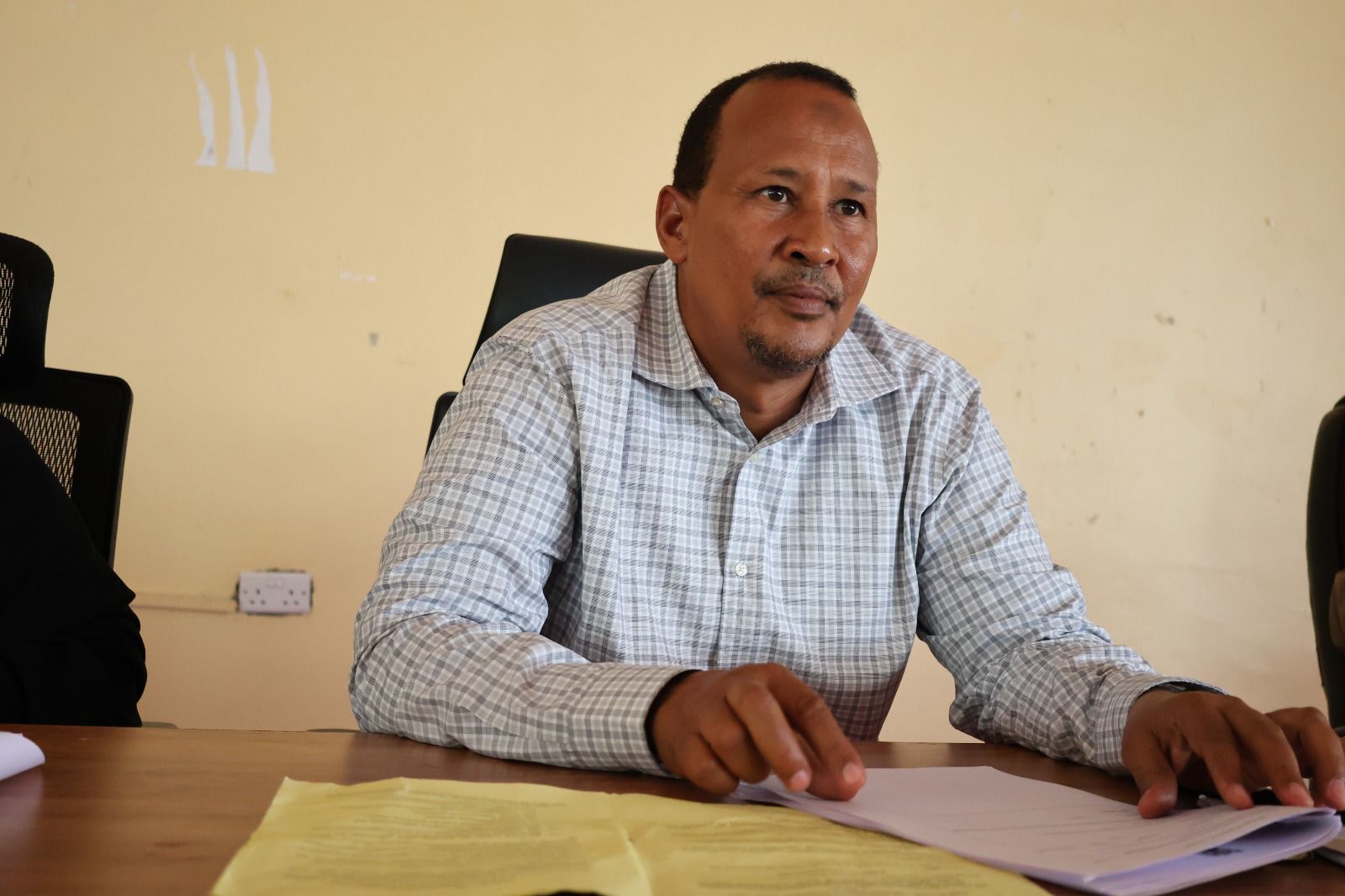

Religious leaders from Wajir during the public participation meeting.
A newly proposed bill seeking to tighten control over the sale, distribution and consumption of miraa and related substances in Wajir county has sparked mixed reactions among residents.
While civil society activists and public health advocates have largely welcomed the Miraa and Other Substances Control Bill, 2025, miraa traders are urging caution, warning the new rules should not cripple their livelihoods.
The debate played out during a public participation forum in Wajir town, organised by the county assembly as part of the Bill’s mandatory consultation process.
The proposed law has already passed its first reading and now heads to subsequent deliberations.
The meeting brought together religious leaders, miraa traders, activists and residents—all eager to weigh in on a Bill that could reshape one of Wajir’s most visible trades.
Human rights defender Hussein Abdi praised the proposed law, saying it struck a much-needed balance between economic interests and public welfare.
“For too long, we’ve seen young people dropping out of school or engaging in unproductive habits because of easy access to miraa. Stricter regulation will help protect families and communities,” Abdi said.
Religious leaders also voiced their support. Sheikh Ibrahim Yunis described the bill as a bold and progressive step towards addressing the social and health challenges linked to miraa use.
“Our region is among the most affected by the abuse of this plant,” he said.
“Its effects are visible—from mental health issues to families draining their resources. Many countries have banned its use and that should tell us something.”
However, for many traders, miraa remains both a livelihood and a cultural staple.
Ambia Hussein, a single mother of five who runs a miraa stall in Wajir, welcomed the spirit of the Bill but appealed for fairness in its implementation.
“While I support the intention to regulate the business, I’m concerned about enforcement. We’re asking that these controls be applied fairly and in consultation with us. Miraa is how many of us feed our families,” she said.
Trader Farhia Hussein argued that miraa is not the main problem. Instead, she blamed muguka, a cheaper and more accessible variant, for fuelling addiction among young people.
“We need to deal with muguka because it’s cheap and easily available to children. The miraa we sell is expensive and mainly bought by adults. The law should focus on banning muguka completely,” Farhia said.
Waberi MCA Aden Bulle explained that the proposed legislation aims to bring structure and accountability to a trade that has long operated informally despite its social and economic significance.
“If this Bill goes through, it will benefit the community by creating a framework for managing the sale of miraa and related substances that have contributed to youth addiction,” Bulle said.
“We face high unemployment and this has worsened substance abuse.”
Maryan Abdikheir, vice chairperson of the county assembly committee on culture and gender, emphasised that the goal was not to criminalise the miraa trade but to bring order.
“The Bill is about establishing control measures to address community concerns,” she said.
“It doesn’t seek to shut down the trade but to ensure it operates responsibly.”
Under the proposed law, all miraa distributors and retailers will be required to obtain operating licences and trading will only be allowed in designated areas approved by county authorities.
Maryan said miraa sellers would also be prohibited from selling other items, such as food in the same premises.
The Bill further seeks to ban miraa sales near learning institutions and places of worship—a measure meant to protect minors and safeguard religious spaces from exposure to substance use.
As Wajir grapples with balancing cultural traditions, livelihoods, and public health, the proposed miraa Bill has opened up a spirited community conversation—one that could define the county’s approach to social responsibility for years to come.
Instant analysis
The proposed Wajir miraa bill marks a crucial moment in balancing culture, commerce and public health. It reflects growing recognition of miraa’s social impact, especially on youth, while acknowledging its economic role for thousands of traders. The strong mix of support and caution shows how deeply intertwined the crop is with livelihoods and identity. Enforcement and fairness will be key—if done sensitively, the law could promote responsible trade and curb abuse; mishandled, it risks alienating small traders and fuelling resentment. Wajir’s approach may well become a test case for how counties manage tradition amid rising social concerns.

Waberi MCA Aden Bulle

Residents going about their business in Wajir town.













